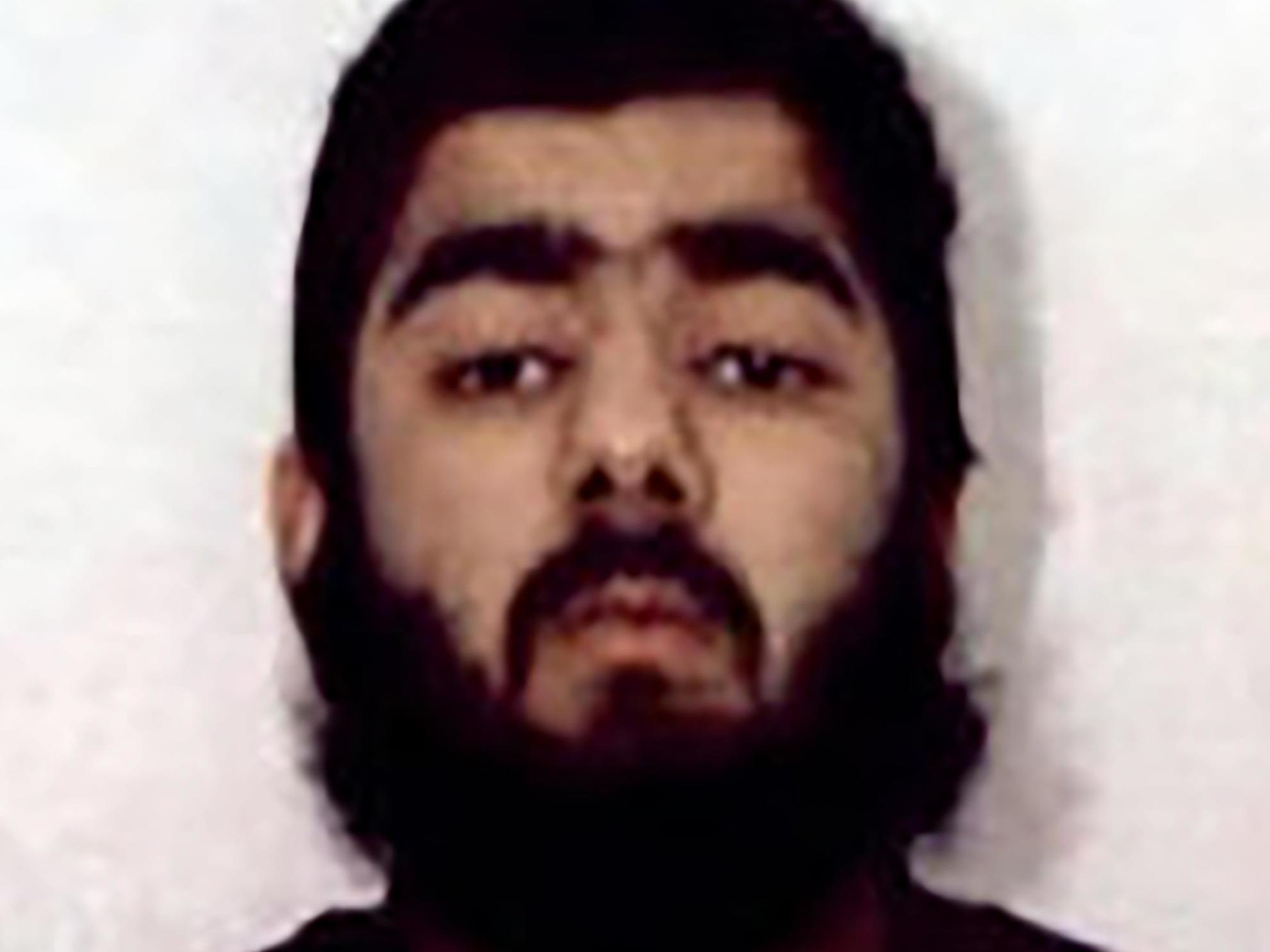Usman Khan: MI5 had intelligence that Fishmongers’ Hall terrorist was planning attack before prison release
Victims’ families calling for MI5 officers involved in case to give evidence at inquests

MI5 had intelligence that terrorist Usman Khan was planning an attack after being freed from prison before he was released, it has emerged.
Khan launched a deadly knife rampage at Fishmongers’ Hall in London on 29 November 2019, after being granted permission to attend a rehabilitation event there by the security services.
He arrived concealing a fake suicide vest and two kitchen knives, which he used to kill Jack Merritt, 25, and Saskia Jones, 23, who had both worked on the Learning Together scheme.
Lawyers representing relatives of the two victims killed are battling for MI5 officers involved in the case to give evidence in upcoming inquests into their deaths.
A pre-inquest hearing at the Old Bailey was told that MI5 reopened its investigation into Khan in August 2018, around four months before he was automatically freed from prison.
He had been jailed for his part in an al-Qaeda-inspired bomb plot in 2012, and a lawyer representing the family of Mr Merritt outlined a concerning prison record.
Nick Armstrong said Khan was made a high-risk category A prisoner shortly before his release, and that much of his time in detention had been spent in special units.
He told the court his prison record showed that he had been radicalising other inmates, encouraging violence inside jail, continued to hold extremist views and had been recruiting for extremist groups.
“MI5 had intelligence shortly before Khan’s release that he was planning a post-release attack, and upgraded his priority rating,” Mr Armstrong added.
The barrister said that both MI5 and probation had also feared that Khan was manipulating them and using “false compliance” with deradicalisation courses and his licence conditions, but may not have properly communicated with each other.
Mr Armstrong told the court that MI5 also received intelligence that Khan was considering relocating to Pakistan and giving up his British nationality in 2019, but the probation service had been told he wanted to settle in the UK and move on with his life.
London Bridge attack: Terror police shoot man after stabbing
Show all 29He said Mr Merritt’s family wanted to know why Khan was allowed to join Cambridge University’s Learning Together scheme, or attend the event where he launched his attack.
Philip Rule, representing Ms Jones’ family, said MI5 officers attended a meeting earlier in November 2019 where Khan’s trip to the event was discussed.
He said bereaved relatives wanted those officers to give evidence at the inquest and explain their decision-making.
Lawyers for the home secretary, on behalf of MI5, are resisting the application and argue that a statement by a more senior officer is sufficient.
Mr Rule said the accounts of the agents directly involved in Khan’s case “cannot be summarised by a third party witness”, and that MI5 would need to prove their evidence would damage the public interest in order to prevent them giving evidence.
“Any Public Interest Immunity assertion must not cover the withholding of mistakes, failures or embarrassment on behalf of an organisation,” he added. “The public interest is plainly served by exposing any such failings.”
Mr Armstrong said Mr Merritt’s relatives “don’t want an overarching narrative, we want detailed facts so we can examine them”.
He added: “You’re not going to get to the bottom of what officers understood by asking the manager.”
Jonathan Hough QC, counsel to the inquests, said that police and probation officers were “primarily responsible” for making decisions about what Khan could do, and that MI5 was “at one remove”.
“Whatever decision the chair makes [on who gives evidence], these questions will be the subject of very careful scrutiny at these inquests,” he added.
The chief coroner of England and Wales, Judge Mark Lucraft QC, said he would give his decision at a later date.
He told Friday’s hearing that the inquests would start on 12 April, as long as a suitable venue is secured.
They were due to take place at the Old Bailey but the court no longer has capacity for the proceedings, given social distancing requirements and the number of other trials taking place.
Subscribe to Independent Premium to bookmark this article
Want to bookmark your favourite articles and stories to read or reference later? Start your Independent Premium subscription today.
